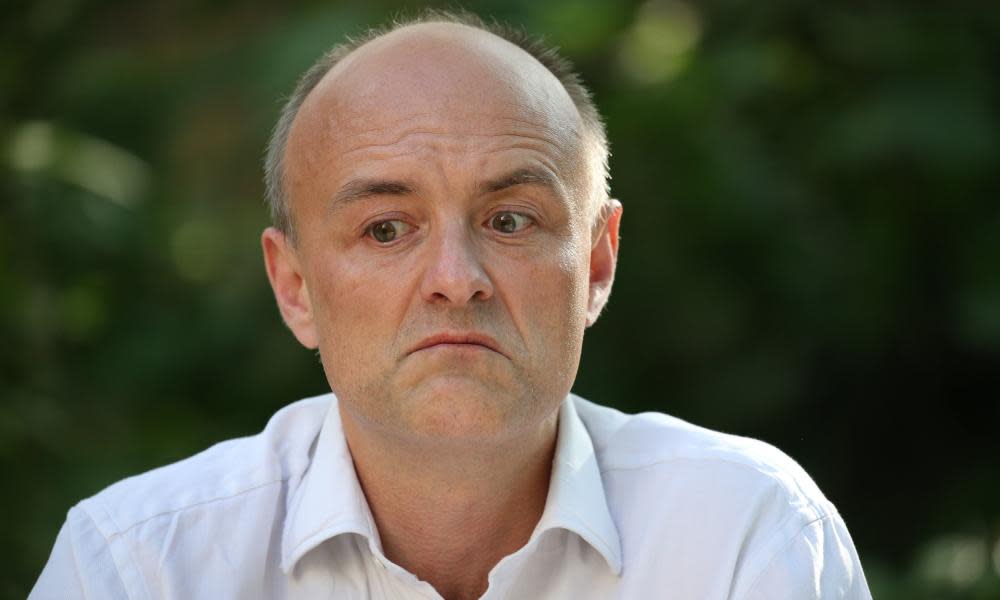Cummings' trip could harm test-and-trace strategy, experts say

Public loss of trust in government advice after Dominic Cummings’s decision to travel to Durham during the lockdown could severely damage the test-and-trace strategy that is vital to managing the coronavirus epidemic and may lead to a new spike in infections, say experts.
Scientists say people told to self-isolate for 14 days because they have been in contact with somebody with symptoms may be less willing to comply.
The former chief scientific adviser Sir David King, who formed the independent Sage group of scientists, said there was now “a crisis of confidence”, which would affect compliance with policies to keep infections down.
Related: ‘I think I behaved reasonably’: Dominic Cummings defends actions in lockdown row
King said: “Any opening up from lockdown requires having the test, trace and isolate policy fully in place. Anyone who is showing symptoms should be tested and if they test positive for the virus they are put immediately into isolation. Then they [contact tracers] trace all of the contacts that person has made over the previous 14 days and all of those contacts too are placed into isolation.”
But Cummings’s decision to travel to Durham when his wife had symptoms, and the prime minister’s endorsement of that, would lead people to think they can decide for themselves where to spend the next fortnight, he said.
“How do you maintain a policy if it is simply up to the individual? Because if people who have the virus are able to be taken by car anywhere other than their place of abode at the time that they have the virus, in isolation, that means there is a possibility of the virus spreading to other people,” he said.
Robert West, a professor of behavioural psychology at University College London and a member of the government’s behavioural scientists advisory body Spi-B, said some of those who had been in contact with someone who had the virus but did not themselves have symptoms would decide not to self-isolate for 14 days.
“It is not a question of whether, but of how many,” he said. “Our job now – or the job of anyone who has responsibility for this – is to minimise that and do the very best we can to restore confidence.”
He said a lot of people thought contact tracing ought to be run locally, by people who knew and understood their communities and would have more chance of convincing people to self-isolate in situations where they might lose money by not being able to work, for instance.
West said the government app to warn people that they have been near someone with Covid-19 was unlikely to succeed now. It is also distrusted by many over privacy issues.


